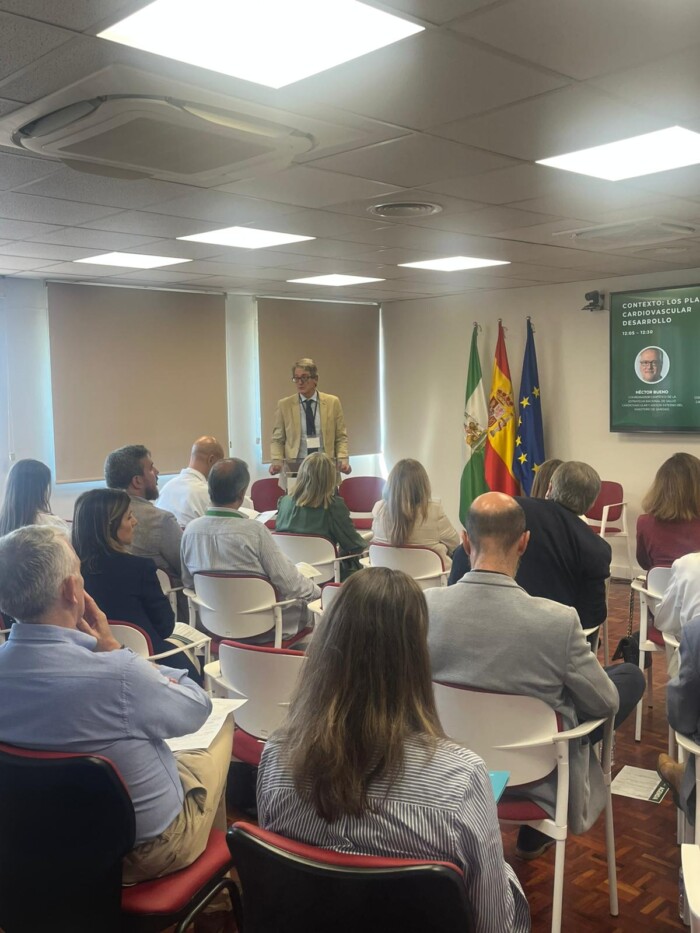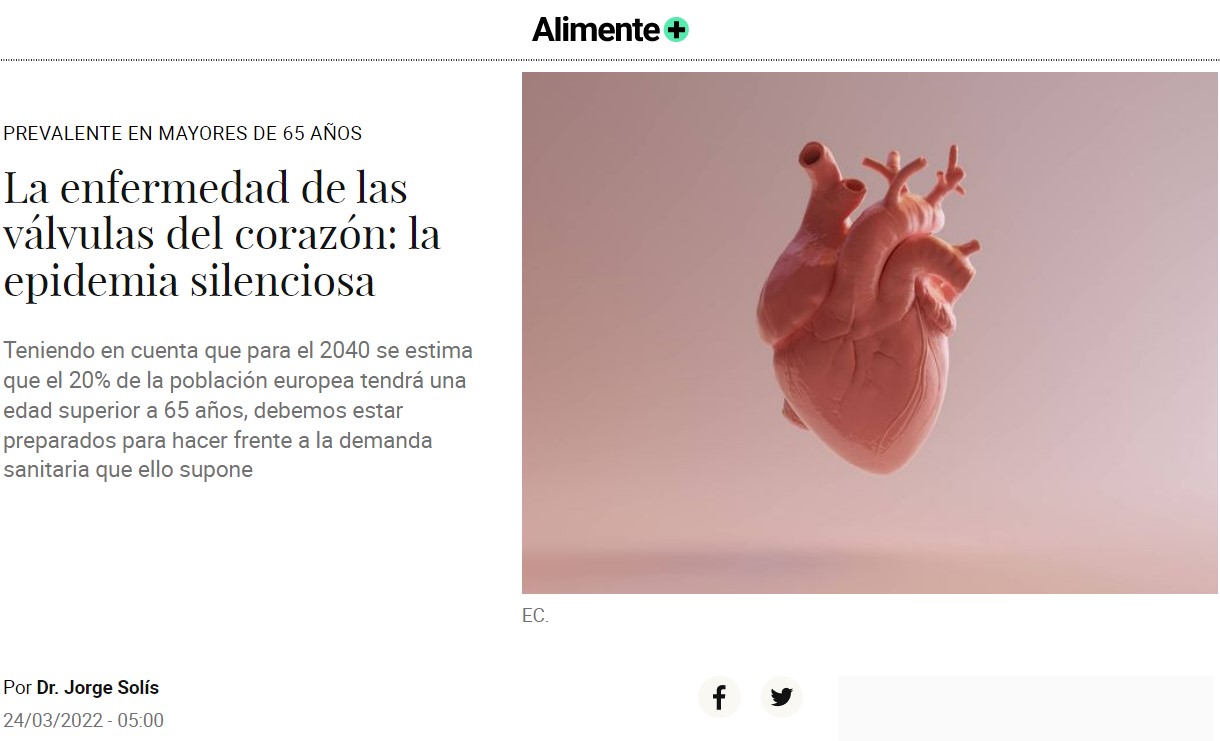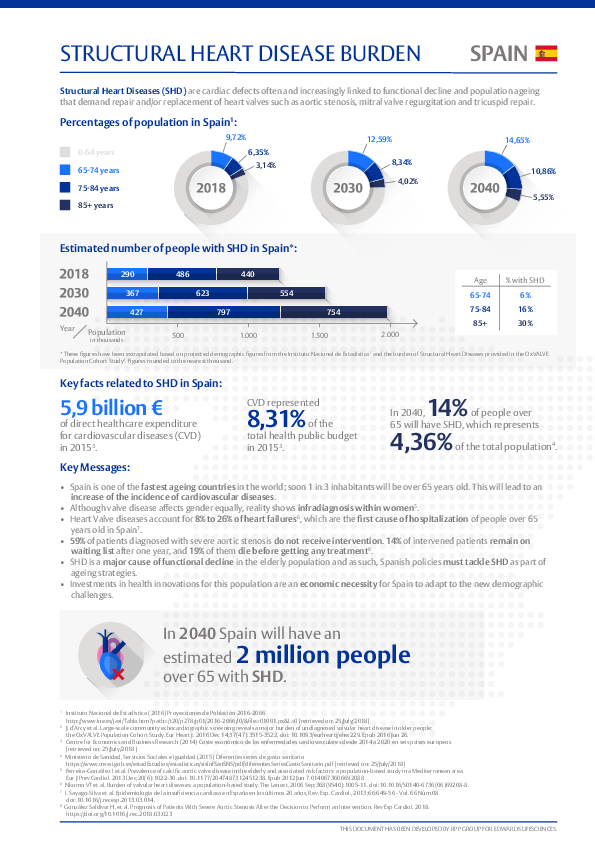Key messages
- Spain is one of the fastest ageing countries in the world; soon 1 in 3 inhabitants will be over 65 years old. This will lead to an increase of the incidence of cardiovascular diseases.
- Although valve disease affects gender equally, reality shows infradiagnosis within women.4
- Heart Valve diseases account for 8% to 26% of heart failures5, which are the first cause of hospitalization of people over 65 years old in Spain6.
- 59% of patients diagnosed with severe aortic stenosis do not receive intervention. 14% of intervened patients remain on waiting list after one year, and 19% of them die before getting any treatment7.
- SHD is a major cause of functional decline in the elderly population and as such, Spanish policies must tackle SHD as part of ageing strategies.
- Investments in health innovations for this population are an economic necessity for Spain to adapt to the new demographic challenges.
- Hospitalisations due to structural heart diseases are on the rise, even though hospitalisations for cardiovascular diseases in general have been declining during the last decade8
References
- Instituto Nacional de Estadística (2016) Proyecciones de Población 2016-2066 http://www.ine.es/jaxi/Tabla.htm?path=/t20/p278/p01/2016-2066/l0/&file=01001.px&L=0 [retrieved on: 25/July/2018]
- Centre for Economics and Business Research (2014) Coste económico de las enfermedades cardiovasculares desde 2014 a 2020 en seis países europeos [retrieved on: 25/July/2018]
- Ministerio de Sanidad, Servicios Sociales e Igualdad (2015) Diferentes series de gasto sanitario https://www.msssi.gob.es/estadEstudios/estadisticas/sisInfSanSNS/pdf/diferentesSeriesGastoSanitario.pdf [retrieved on: 25/July/2018]
- Ferreira-González I et al. Prevalence of calcific aortic valve disease in the elderly and associated risk factors: a population-based study in a Mediterranean area.Eur J Prev Cardiol. 2013 Dec;20(6):1022-30. doi: 10.1177/2047487312451238. Epub 2012 Jun 7.0140673606692088
- Nkomo VT et al. Burden of valvular heart diseases: a population-based study. The Lancet. 2006 Sep;368(9540):1005-11. doi: 10.1016/S0140-6736(06)69208-8.
- I. Sayago-Silva et al. Epidemiología de la insuficiencia cardíaca en España en los últimos 20 años, Rev. Esp. Cardiol., 2013;66:649-56 – Vol. 66 Núm.08 doi: 10.1016/j.recesp.2013.03.014.
- González Saldivar H, et al. Prognosis of Patients With Severe Aortic Stenosis After the Decision to Perform an Intervention. Rev Esp Cardiol. 2018. https://doi.org/10.1016/j.rec.2018.03.023
- Recent Trends in Hospitalizations for Cardiovascular Disease, Stroke, and Vascular Cognitive Impairment in Canada https://www.onlinecjc.ca/article/S0828-282X(20)30260-9/pdf
















